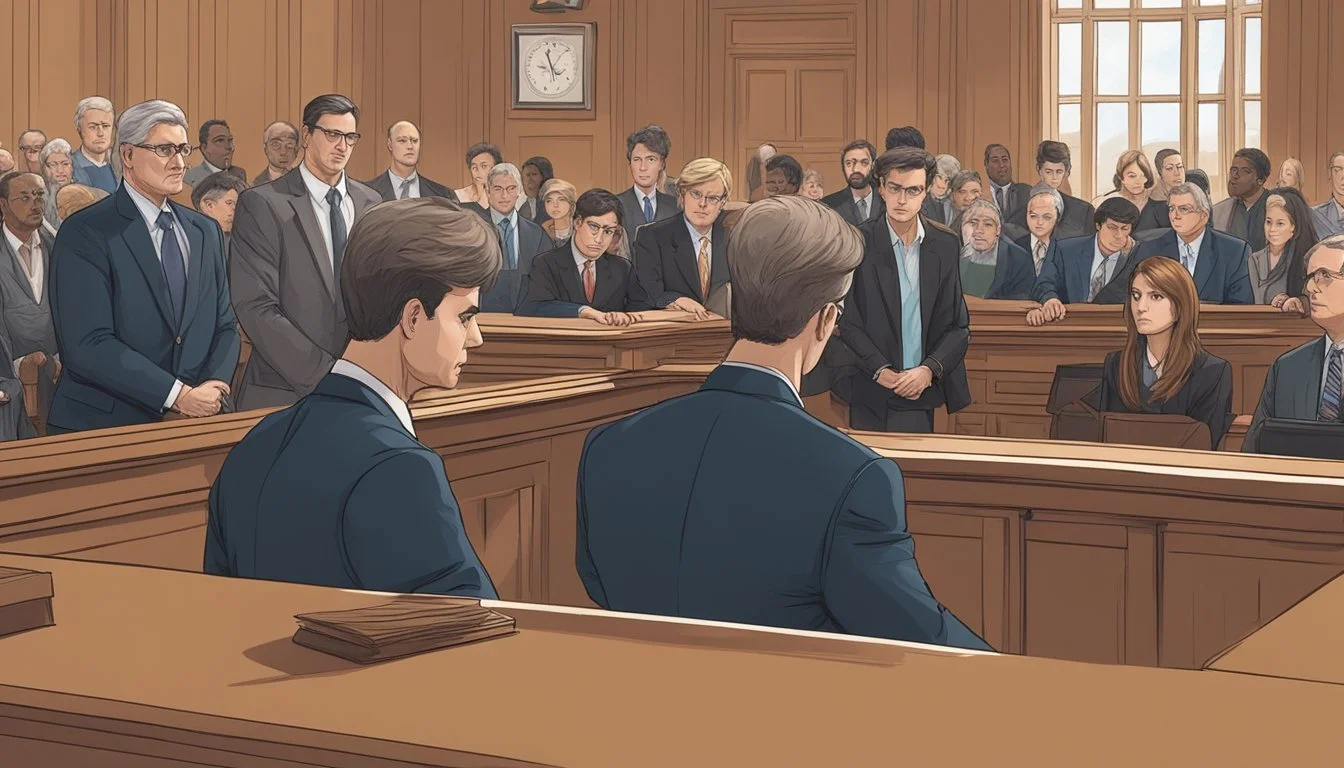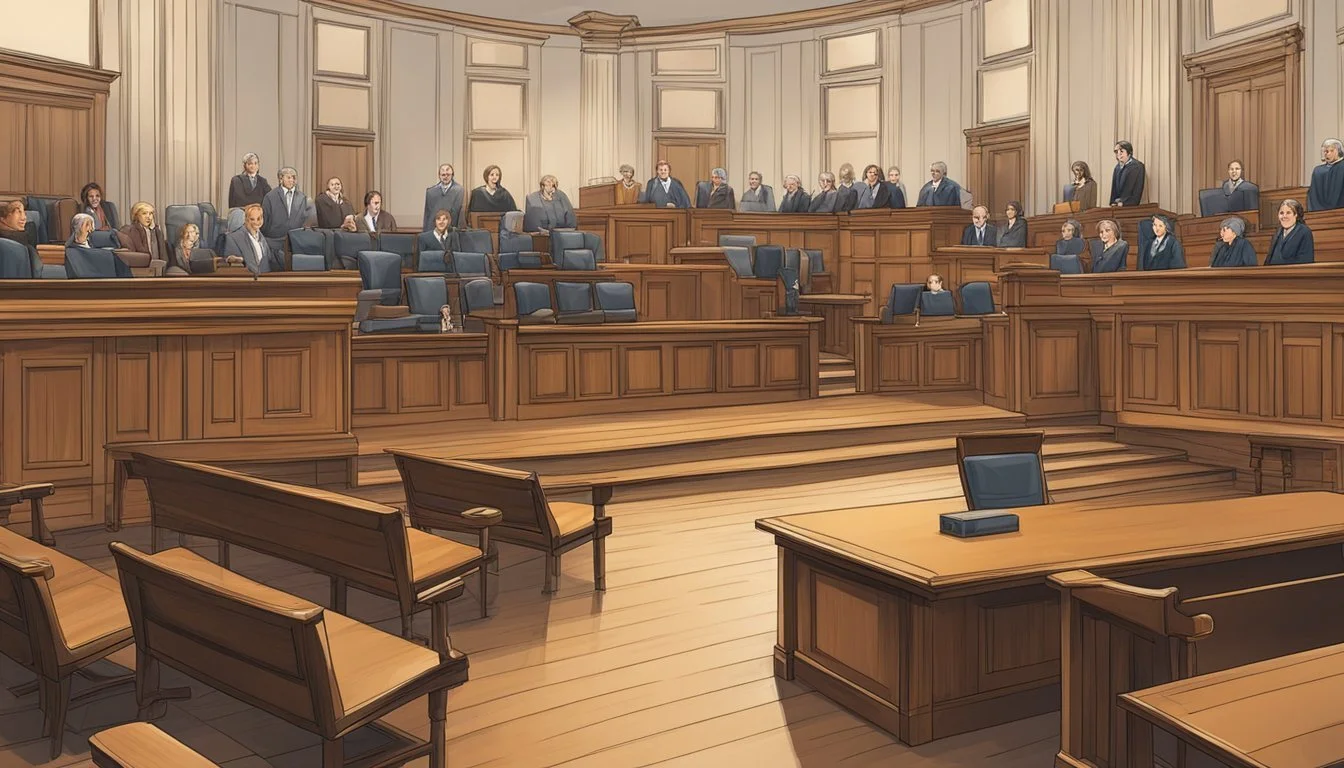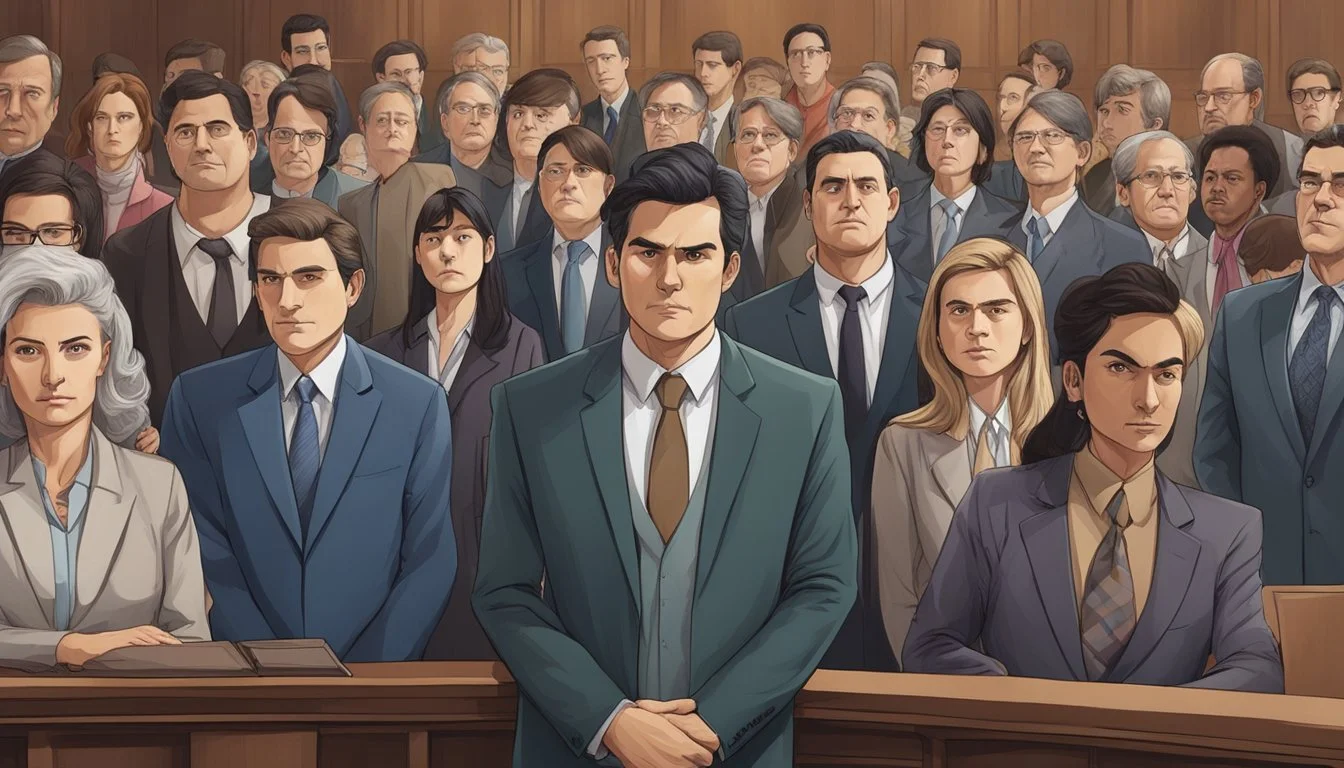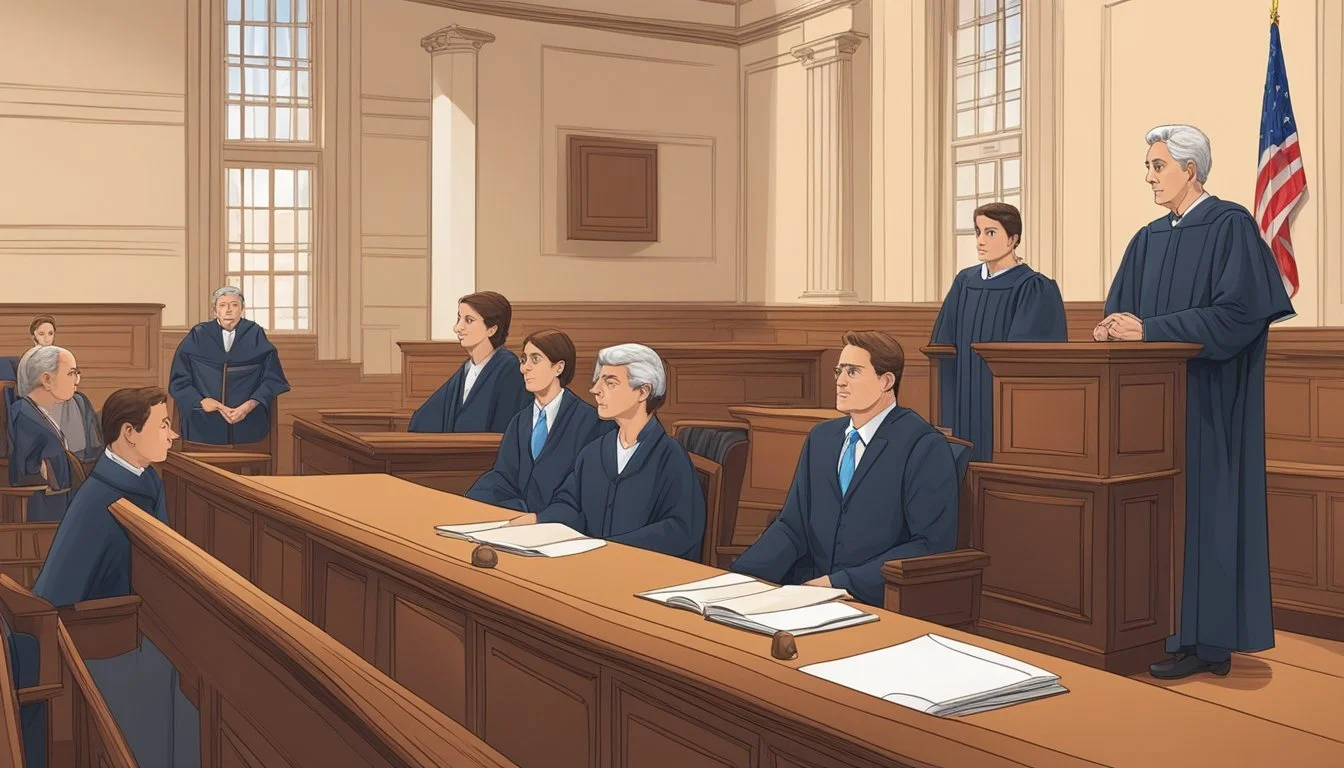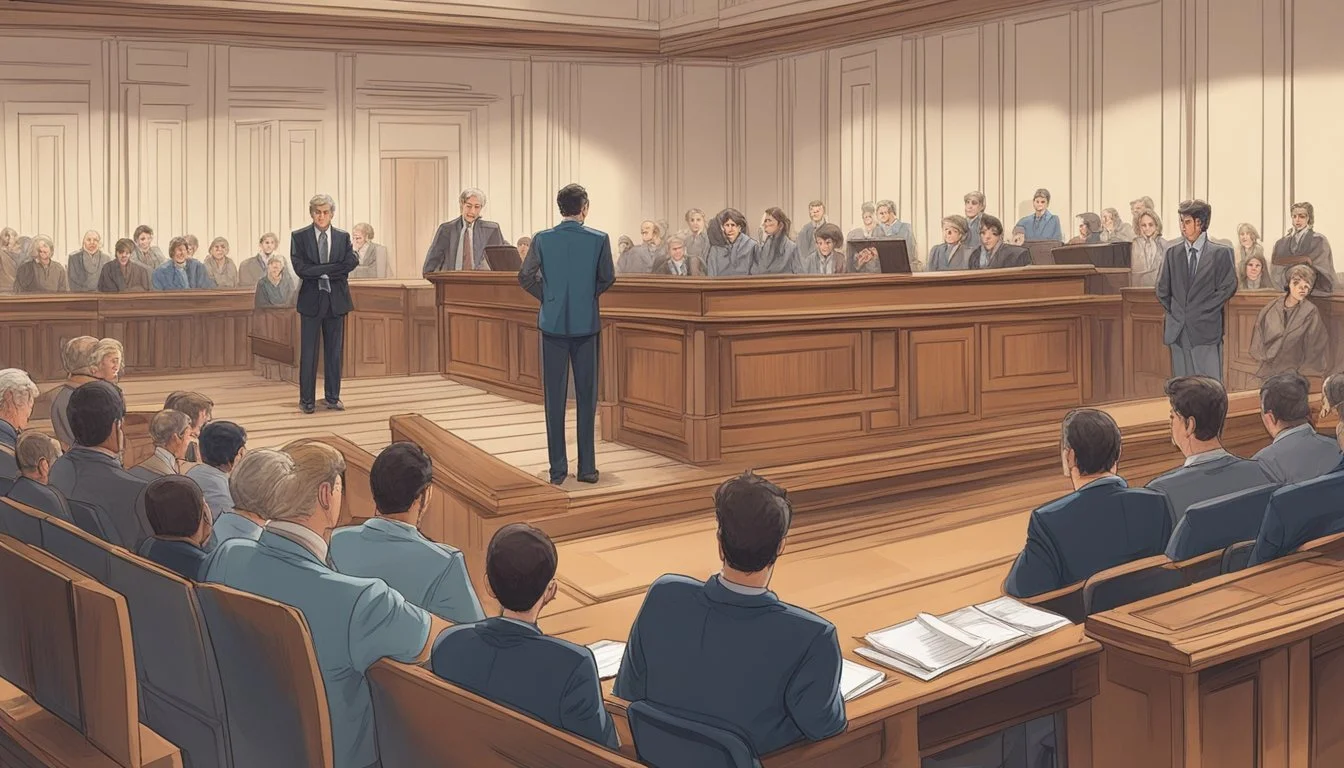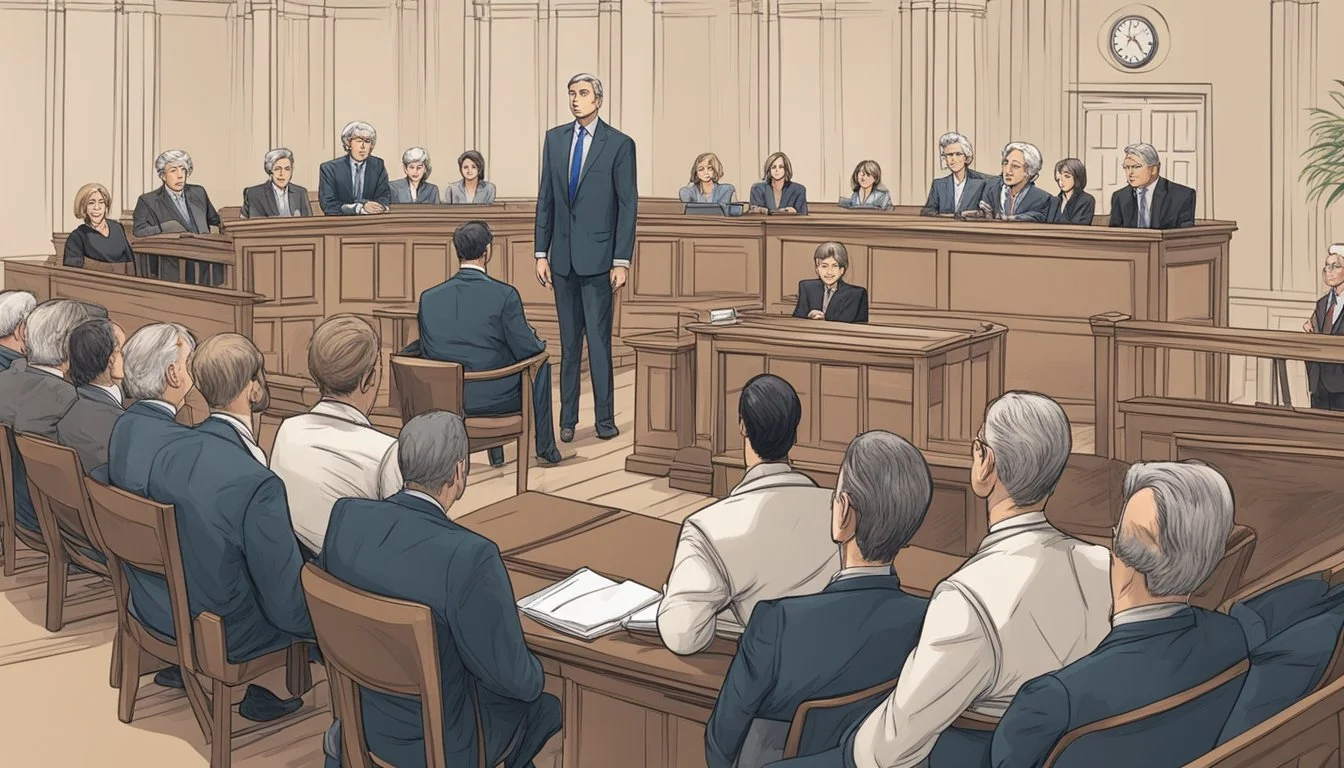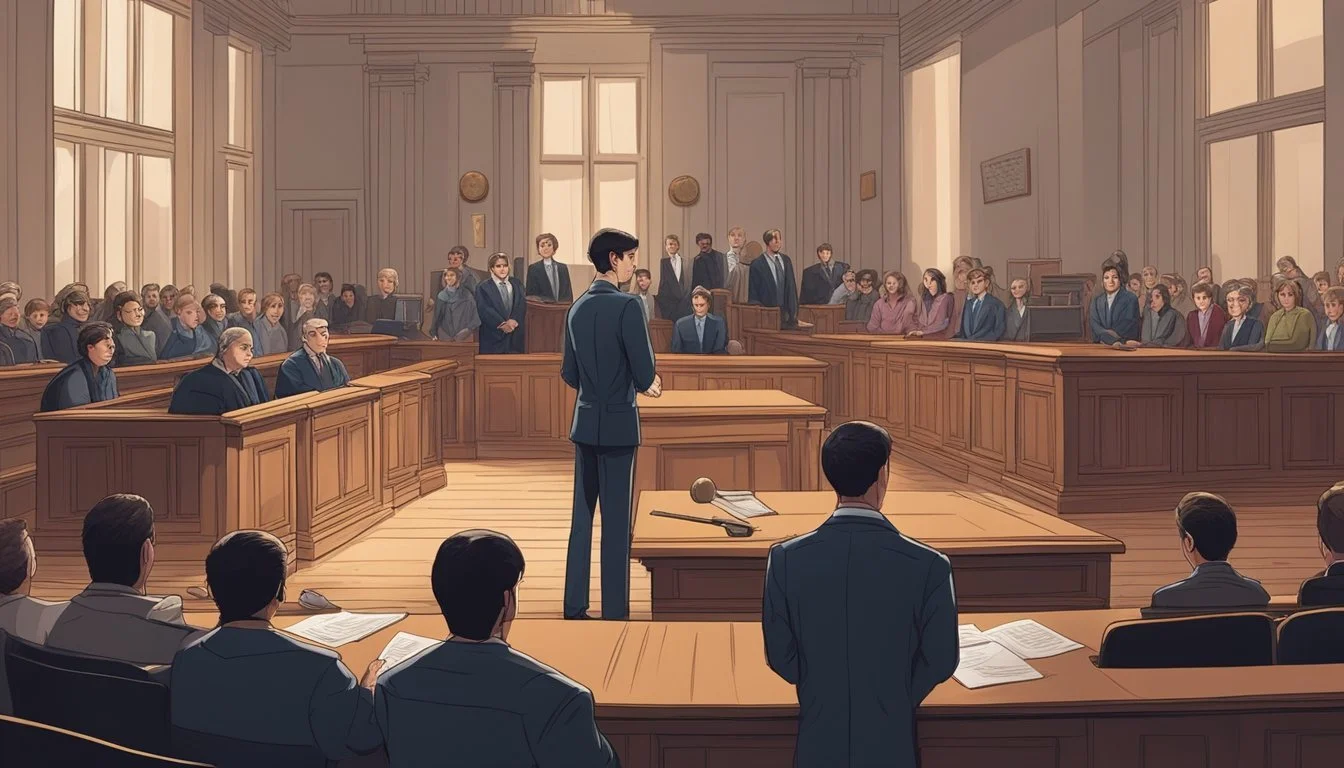Defending Jacob: A Prosecutor's Nightmare Unfolds
"Defending Jacob" explores the harrowing journey of a family torn apart by accusations of murder. Based on William Landay's gripping legal thriller, the story follows Andy Barber, a seasoned prosecutor whose world crumbles when his 14-year-old son Jacob becomes the prime suspect in a classmate's brutal killing. The series delves into the complexities of parental love, the presumption of innocence, and the lengths one family will go to protect their own.
Set against the backdrop of a small Massachusetts town, the narrative unfolds as Andy and his wife Laurie grapple with mounting evidence against their son. The once-respected prosecutor finds himself on the other side of the courtroom, fighting to prove Jacob's innocence while confronting his own doubts and family secrets.
This thought-provoking tale challenges viewers to question their assumptions about guilt, innocence, and the nature of justice. As the Barber family's facade of normalcy crumbles, "Defending Jacob" presents a chilling exploration of how far parents will go to shield their child from harm, even when faced with the unthinkable.
Overview of 'Defending Jacob'
'Defending Jacob' is a gripping legal thriller by William Landay. Published in 2012, this crime novel quickly gained recognition for its intense suspense and thought-provoking storyline.
Set in Newton, Massachusetts, the book centers around Andy Barber, an assistant district attorney. His world is shattered when his 14-year-old son Jacob is accused of murdering a classmate.
The novel explores the complexities of family loyalty, the justice system, and the nature-versus-nurture debate. Landay's background as a former district attorney lends authenticity to the legal proceedings depicted in the story.
'Defending Jacob' is narrated from Andy's perspective, allowing readers to experience his internal struggle as both a father and a prosecutor. This unique viewpoint adds depth to the unfolding drama.
The book's pacing keeps readers on edge, alternating between courtroom scenes and intimate family moments. Landay skillfully weaves in elements of psychological suspense, creating an unforgettable reading experience.
Critics have praised 'Defending Jacob' for its realistic portrayal of the legal system and its exploration of moral ambiguity. The novel's success led to its adaptation into an Apple TV+ miniseries in 2020.
Cast of Characters
The central figures in "Defending Jacob" grapple with complex emotions and moral dilemmas as they navigate a shocking murder accusation. Each character brings depth and nuance to this gripping family drama.
Andy Barber
Chris Evans portrays Andy Barber, the assistant district attorney whose world is upended when his son becomes a murder suspect. Andy's unwavering belief in Jacob's innocence drives his actions throughout the series. He leverages his legal expertise and connections to defend his son, often blurring ethical lines in the process.
Andy's dedication to his family is tested as he confronts uncomfortable truths about his own past and genetic history. His character arc explores the lengths a parent will go to protect their child, even in the face of mounting evidence and public scrutiny.
Jacob Barber
Jaeden Martell takes on the role of Jacob Barber, the 14-year-old at the center of the murder investigation. Jacob's demeanor and behavior become subjects of intense scrutiny as the community and his own family question his innocence.
Martell's portrayal captures Jacob's complex emotions - fear, confusion, and isolation - as he faces accusations from classmates and struggles with his changing relationship with his parents. The character's true nature remains ambiguous, keeping viewers guessing about his guilt or innocence until the very end.
Laurie Barber
Michelle Dockery plays Laurie Barber, Jacob's mother and Andy's wife. Laurie's faith in her son is repeatedly tested as new evidence comes to light. Her character grapples with mounting doubt and the psychological toll of the accusations against Jacob.
Dockery's nuanced performance showcases Laurie's internal conflict between maternal instinct and growing suspicion. As the trial progresses, Laurie's relationship with both Andy and Jacob becomes increasingly strained, leading to pivotal decisions that impact the entire family.
Neal Logiudice
Pablo Schreiber portrays Neal Logiudice, Andy's ambitious colleague who takes over the murder case after Andy is removed due to conflict of interest. Logiudice's relentless pursuit of a conviction puts him at odds with his former mentor.
The character serves as a foil to Andy, representing the strict adherence to legal procedure that Andy often sidesteps in his quest to prove Jacob's innocence. Logiudice's motivations blend professional ambition with a genuine desire for justice, adding complexity to his antagonistic role.
Leonard Patz
Leonard Patz, played by Daniel Henshall, is a convicted pedophile who becomes a person of interest in the murder investigation. Patz's presence in the community adds another layer of suspicion and uncertainty to the case.
The character's shadowy past and potential involvement in the crime create tension and misdirection throughout the series. Patz represents the difficulty in determining guilt when multiple suspects are in play, further complicating the central mystery of Jacob's innocence or guilt.
Plot and Narrative Structure
"Defending Jacob" weaves a complex tale of murder, family loyalty, and the search for truth. The story unfolds through a series of events that challenge the Barber family and their community.
Murder of Ben Rifkin
The novel opens with the shocking discovery of Ben Rifkin's body in a park near the local middle school. The 14-year-old boy was stabbed to death, sending shockwaves through the quiet town of Newton, Massachusetts.
Assistant District Attorney Andy Barber takes charge of the investigation. He works closely with the police to gather evidence and interview potential witnesses. The community is on edge, demanding swift justice for the young victim.
As the investigation progresses, suspicion begins to fall on various individuals. The police explore multiple leads, including a local pedophile and some of Ben's classmates.
Jacob's Accusation and Arrest
The case takes a dramatic turn when evidence points to Andy's son, Jacob. Fingerprints on Ben's clothing and a knife found in Jacob's room raise suspicions.
Andy is forced to recuse himself from the case. He struggles to reconcile his role as a prosecutor with his instinct to protect his son. His wife, Laurie, grapples with doubts about Jacob's innocence.
Jacob is arrested and charged with murder. The Barber family faces intense scrutiny from the media and their neighbors. Their once-comfortable life is turned upside down as they prepare for a legal battle.
Revelation of Secrets
As the case unfolds, long-buried secrets come to light. Andy's family history of violence is revealed, raising questions about genetic predisposition to criminal behavior.
Jacob's online activities and social media posts become key evidence. They reveal a darker side to his personality, including violent fantasies and disturbing comments about Ben.
The Barbers learn of Jacob's troubled relationships with his peers. Incidents of bullying and social isolation paint a complex picture of their son's life at school.
Trial Proceedings
The trial begins, with the prosecution presenting a strong case against Jacob. Witness testimony and physical evidence seem to point towards his guilt.
Andy hires a skilled defense attorney, Jonathan Klein. Together, they work to cast doubt on the prosecution's case and present alternative theories of the crime.
Key witnesses take the stand, including Jacob's classmates and teachers. Their testimonies provide conflicting accounts of Jacob's character and his relationship with Ben.
Forensic experts debate the validity of the evidence. The defense challenges the reliability of fingerprint analysis and questions the handling of the crime scene.
Climax and Resolution
The trial reaches its climax with unexpected twists. A surprise witness comes forward with new information that could exonerate Jacob.
Family tensions reach a breaking point as Andy and Laurie confront their doubts about their son. Jacob's own testimony becomes a pivotal moment in the trial.
The jury deliberates, leaving the Barbers in agonizing suspense. The verdict is delivered, but questions linger about Jacob's true innocence or guilt.
The novel concludes with a shocking turn of events that forces the characters to confront the truth about the murder and its consequences.
Themes and Motifs
"Defending Jacob" explores complex themes of family loyalty, moral ambiguity, and the nature of guilt. The novel delves into the psychological and ethical dilemmas faced by parents when their child is accused of a heinous crime.
Innocence versus Guilt
The central conflict revolves around Jacob's potential guilt or innocence. His father, Andy, grapples with mounting evidence against his son while desperately clinging to belief in Jacob's innocence. This creates tension between Andy's roles as a father and as a prosecutor.
The novel challenges readers to question their own assumptions about guilt and innocence. It presents a nuanced view of how difficult it can be to determine the truth, especially when family is involved.
Jacob's demeanor and actions often leave his innocence in doubt. His apparent lack of empathy and disturbing online comments raise suspicions.
Parenting and Family Dynamics
Andy and Laurie's relationship is strained by Jacob's trial. They struggle with how to best support their son while dealing with their own doubts and fears.
The novel examines the lengths parents will go to protect their children. Andy jeopardizes his career and ethical standards in his efforts to defend Jacob.
Laurie faces her own crisis of faith in her son. Her doubts about Jacob's innocence create conflict with Andy's unwavering support.
The Barbers must confront how well they truly know their son. Jacob's trial forces them to question their parenting and family bonds.
Nature versus Nurture
The concept of a "murder gene" plays a key role in Jacob's defense. This raises questions about genetic predisposition to violence versus environmental influences.
Andy's family history of violence complicates matters. He fears he may have passed on violent tendencies to Jacob.
The novel explores how much parents can shape their children's moral development. It questions whether some individuals are simply born with violent impulses.
Jacob's upbringing in an affluent, stable home is contrasted with his potential for violence. This challenges assumptions about the roots of criminal behavior.
Justice System and Morality
Andy's insider perspective as a prosecutor adds depth to the exploration of the justice system. His willingness to bend rules for Jacob's benefit highlights moral ambiguities.
The trial process is depicted as flawed and easily manipulated. This raises doubts about the system's ability to determine truth and deliver justice.
Ethical dilemmas abound as characters make compromises in pursuit of their goals. The line between right and wrong becomes increasingly blurred.
The novel questions whether true justice is possible in a system influenced by wealth, connections, and legal maneuvering.
Adaptation to Screen
Defending Jacob made the leap from page to screen as a gripping limited series on Apple TV+. The adaptation brought William Landay's bestselling novel to life with a star-studded cast and some notable changes from the source material.
Apple TV+ Series
Apple TV+ released Defending Jacob as an eight-episode limited series in 2020. The show was created by Mark Bomback and directed by Morten Tyldum. It retained the core premise of a prosecutor's son being accused of murder while expanding certain elements of the story.
The series format allowed for deeper character exploration and added subplots not present in the novel. Apple TV+ positioned Defending Jacob as a prestige drama, investing in high production values and an A-list cast to bring the tense legal thriller to life.
Casting Choices
Chris Evans took on the lead role of Andy Barber, bringing star power and nuanced performance to the conflicted father and prosecutor. Michelle Dockery portrayed Laurie Barber, Andy's wife, conveying the character's emotional turmoil and doubt.
Jaeden Martell was cast as Jacob Barber, the teenage son accused of murder. His performance balanced Jacob's innocence and the unsettling possibility of his guilt. Cherry Jones and Pablo Schreiber rounded out the cast in key supporting roles.
Differences from the Novel
The TV adaptation made several changes from Landay's book. It expanded Laurie's character, giving her a more prominent role in the story. The series also altered some plot points and added new scenes to increase tension and drama.
The ending of the series diverged significantly from the novel, offering a more ambiguous conclusion. This change sparked debate among fans of the book. The adaptation also updated the setting to present-day Massachusetts and incorporated modern technology into the plot.
Legal Accuracy and Courtroom Representation
"Defending Jacob" presents a nuanced portrayal of the legal system, blending courtroom drama with procedural authenticity. The novel's depiction of legal processes and trial scenes offers readers a glimpse into the complexities of criminal justice.
Depiction of Legal Procedures
The book accurately portrays the role of an Assistant District Attorney, showcasing the intricacies of prosecutorial work. Andy Barber's transition from prosecutor to defendant's father highlights the stark contrast between professional duty and personal involvement.
The grand jury process is depicted with attention to detail, illustrating its function in determining whether there's enough evidence to bring a case to trial. This portrayal gives readers insight into a crucial but often overlooked part of the legal system.
Legal strategies and evidence gathering are presented realistically, reflecting the meticulous nature of case preparation. The novel explores the challenges of DNA evidence and witness testimony, demonstrating the complexities of building a case.
Realism in the Portrayal of the Trial
Courtroom scenes in "Defending Jacob" are crafted with a high degree of authenticity. The back-and-forth between prosecution and defense mirrors real-life trial dynamics, capturing the tension and strategic maneuvering of legal arguments.
Expert testimony plays a significant role, with forensic evidence such as blood spatters and fingerprints being scrutinized. This focus on scientific evidence reflects modern trial practices and the importance of expert witnesses in high-profile cases.
The novel effectively illustrates the emotional toll of a trial on all parties involved. It portrays the strain on relationships, the pressure on legal professionals, and the impact on the community, adding depth to the legal thriller genre.
Comparison with Real-life Cases
"Defending Jacob" draws parallels with actual criminal cases, particularly those involving juvenile defendants. The novel's exploration of familial DNA and genetic predisposition to violence reflects real debates in criminal justice.
The book's treatment of media influence and public opinion in high-profile cases resonates with real-world scenarios. It illustrates how external pressures can affect the legal process and shape public perception of guilt or innocence.
Comparisons to Scott Turow's "Presumed Innocent" are apt, as both novels delve into the personal and professional challenges faced by legal professionals when caught in the crosshairs of the justice system they serve.
Reception and Critical Response
"Defending Jacob" received widespread acclaim as a gripping legal thriller and crime novel. Critics praised William Landay's ability to create suspense and keep readers guessing until the final pages.
Many reviewers highlighted the book's exploration of complex family dynamics and moral dilemmas. The novel's unflinching look at how a criminal accusation affects a family resonated strongly with readers.
The character development, particularly of Andy Barber, was frequently cited as a strength. Landay's portrayal of a father torn between his professional duties and parental instincts drew praise for its nuance and realism.
Some critics noted that the pacing occasionally slowed in the middle sections. However, most agreed that the compelling courtroom scenes and shocking twists more than made up for any lulls.
"Defending Jacob" appeared on several bestseller lists and earned nominations for major mystery and thriller awards. Its success led to a well-received television adaptation starring Chris Evans.
Readers consistently described the novel as "unforgettable" and "thought-provoking." Many book clubs selected it for discussion, finding its moral quandaries fertile ground for debate.
Broader Cultural Impact
"Defending Jacob" sparked conversations about the intersection of legal ethics, family values, and public perceptions of justice in small-town America.
Discussion of Legal Ethics and Family Values
The show explored the ethical dilemmas faced by Andy Barber, a prosecutor whose son becomes a murder suspect. This scenario highlighted the conflict between professional duty and familial loyalty. Andy's struggle to balance his role as a father with his obligations to the justice system resonated with viewers.
The series also examined how accusations can strain family relationships. The Barbers' once-stable family unit became fractured under the weight of suspicion and doubt. This portrayal prompted discussions about trust, unconditional love, and the limits of parental support.
"Defending Jacob" raised questions about nature versus nurture. The revelation of a potential "murder gene" in the family lineage added complexity to debates about heredity and criminal behavior.
Public Perception of the Justice System
The show shed light on how high-profile cases can influence public opinion of the legal system. In the fictional Massachusetts town, media coverage and community gossip shaped perceptions of Jacob's guilt or innocence.
"Defending Jacob" depicted the challenges of ensuring a fair trial in a small community where everyone knows each other. The series illustrated how pre-existing relationships and biases can impact judicial proceedings.
The show also highlighted the role of social media in modern criminal cases. Online speculation and cyberbullying added new dimensions to the legal drama, reflecting real-world concerns about digital influence on justice.

